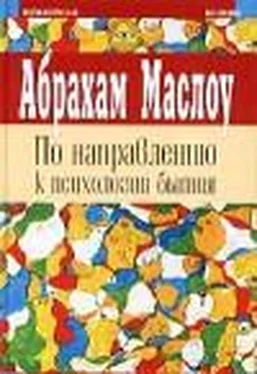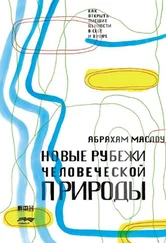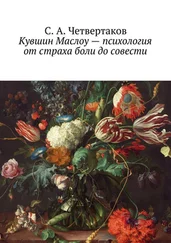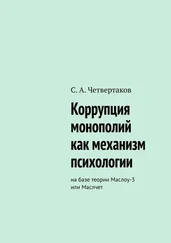Абрахам Маслоу - По направлению к психологии бытия
Здесь есть возможность читать онлайн «Абрахам Маслоу - По направлению к психологии бытия» весь текст электронной книги совершенно бесплатно (целиком полную версию без сокращений). В некоторых случаях можно слушать аудио, скачать через торрент в формате fb2 и присутствует краткое содержание. Жанр: Психология, на русском языке. Описание произведения, (предисловие) а так же отзывы посетителей доступны на портале библиотеки ЛибКат.
- Название:По направлению к психологии бытия
- Автор:
- Жанр:
- Год:неизвестен
- ISBN:нет данных
- Рейтинг книги:3 / 5. Голосов: 2
-
Избранное:Добавить в избранное
- Отзывы:
-
Ваша оценка:
- 60
- 1
- 2
- 3
- 4
- 5
По направлению к психологии бытия: краткое содержание, описание и аннотация
Предлагаем к чтению аннотацию, описание, краткое содержание или предисловие (зависит от того, что написал сам автор книги «По направлению к психологии бытия»). Если вы не нашли необходимую информацию о книге — напишите в комментариях, мы постараемся отыскать её.
По направлению к психологии бытия — читать онлайн бесплатно полную книгу (весь текст) целиком
Ниже представлен текст книги, разбитый по страницам. Система сохранения места последней прочитанной страницы, позволяет с удобством читать онлайн бесплатно книгу «По направлению к психологии бытия», без необходимости каждый раз заново искать на чём Вы остановились. Поставьте закладку, и сможете в любой момент перейти на страницу, на которой закончили чтение.
Интервал:
Закладка:
94. MASLOW, A.H. and MITTELMANN, B. Principles of Abnormal Psychology. Harper, 1941.
95. MASLOW, A.H. Experimentalizing the clinical method, J. Clinical Psychol., 1945, 1, 241–243.
96. —— Resistance to acculturation, J. Soc. Issues, 1951, 7, 26–29.
96a. —— Comments on Dr. Old's paper, in: Jones, M.R.(ed.) Nebraska Symposium on Motivation, 1955. Univ. of Neb., 1955.
97. —— Motivation and Personality. Harper, 1954.
98. —— A philosophy of psychology, in: Fairchild, J. (ed.) Personal Problems and Psychological Frontiers. Sheridan, 1957.
99. —— Power relationships and patterns of personal development, in: Kornhauser, A. (ed.) Problems of Power in American Democracy. Wayne Univ., 1957.
100. —— Two kinds of cognition. General Semantics Bulletin, 1957, Nos. 20 and 21, 17–22.
101. —— Emotional blocks to creativity, J. Individ. Psychol., 1958, 14, 51–56.
102. —— (ed.) New Knowledge in Human Values. Harper, 1959.
103. ——, RAND, H. and NEWMAN, S. Some parallels between the dominance and sexual behavior of monkeys and the fantasies of psychoanalytic patients, J. of Nervous and Mental Disease, 1960, 131, 202–212.
104. —— Lessons from the peak-experiences, J. Humanistic Psychol., 1962, 2, 9-18.
105. ——, and DIAZ-GUERRERO, R. Juvenile delinquency as a value disturbance, in: Peatman, J., and Hartley, E. (eds.). Festschrift for Gardner Murphy. Harper, 1960.
106. —— Peak-experiences as completions. (To be published.)
107. —— Eupsychia — the good society, J. Humanistic Psychol., 1961, 1, 1-11.
108. ——, and MINTZ, N. L. Effects of esthetic surroundings: I. Initial short-term effects of three esthetic conditions upon perceiving «energy» and «well-being» in faces, J. Psychol., 1956, 41 247–254.
109. MASSERMAN, J. (ed.) Psychoanalysis and Human Values. Grane and Stratton, 1960.
110. MAY, R., et al. (eds.) Existence. Basic Books, 1958.
111. —— (ed.) Existential Psychology. Random House, 1961.
112. MILNER, M. (Joanna Field, pseudonym). A Life of One's Own. Pelican Books, 1952.
113. MILNER, M. On Not Being Able to Paint. Int. Univs. Press, 1957
114. MINTZ, N.L. Effects of esthetic surroundings: II. Prolonged and repeated experiences in a «beautiful» and an «ugly» room, J. Psychol, 1956, 41, 459–466.
115. MONTAGU, ASHLEY, M.F. The Direction of Human Development. Harper, 1955.
115a. MORENO, J. (ed.) Sociometry Reader. Free Press, 1960.
116. MORRIS, C. Varieties of Human Value. Univ. of Chicago, 1956.
117. MOUSTAKAS, C. The Teacher and the Child. McGraw-Hill, 1956.
118. —— (ed.) The Self. Harper, 1956.
119. MOWRER, О.Н. The Crisis in Psychiatry and Religion. Van Nostrand, 1961.
120. MUMFORD, L. The Transformations of Man. Harper, 1956.
121. MUNROE, R.L. Schools of Psychoanalytic Thought. Dryden, 1955.
122. MURPHY, G. Personality. Harper, 1947.
123. MURPHY, G., and HOCHBERG, J. Perceptual development: some tentative hypotheses, Psychol Rev., 1951, 58, 332–349.
124. MURPHY, G. Human Potentialities. Basic Books, 1958.
125. MURRAY, H.A, Vicissitudes of Creativity, in: Anderson H.H., (ed.) Creativity and Its Cultivation. Harper, 1959.
126. NAMECHE, G. Two pictures of man, J. Humanistic Psychol., 1961 1, 70–88.
127. NIEBUHR, R. The Nature and Destiny of Man. Scribner's, 1947.
127a. NORTHROP, F.C.S. The Meeting of East and West. Macmillan, 1946.
128. NUTTIN, J. Psychoanalysis and Personality. Sheed and Ward, 1953.
129. O'CONNELL, V. On brain washing by psychotherapists: The effect of cognition in the relationship in psychotherapy. Mimeographed, 1960.
129a. OLDS, J. Physiological mechanisms of reward, in: Jones, M.R. (ed.) Nebraska Symposium on Motivation, 1955. Univ. of Nebr., 1955.
130. OPPENHEIMER, O. Toward a new instinct theory, J. Social Psychol., 1958, 47, 21–31.
131. OVERSTREET, H.A. The Mature Mind. Norton, 1949.
132. OWENS, С.М. Awakening to the Good. Christopher, 1958.
133. PERLS, F., HEFFERLINE, R. and GOODMAN, P. Gestalt Therapy. Julian, 1951
134. PETERS, R.S. "Mental health" as an educational aim. Paper read before Philosophy of Education Society, Harvard University, March, 1961.
135. PROGOFF, I. Jung's Psychology and Its Social Meaning. Grove, 1953.
136. PROGOFF, I. Depth Psychology and Modem Man. Julian, 1959.
137. RAPAPORT, D. Organization and Pathology of Thought. Columbia Univ., 1951
138. REICH, W. Character Analysis. Orgone Inst., 1949.
139. REIK, T. Of Love and Lust. Farrar, Straus, 1957.
140. RIESMAN, D. The Lonely Crowd. Yale Univ., 1950.
141. RITCHIE, B.F. Comments on Professor Farber's paper, in: Jones, M.R. (ed.) Nebraska Symposium on Motivation. Univ. of Nebr., 1954, 46–50.
142. ROGERS, C. Psychotherapy and Personality Change. Univ. of Chicago, 1954.
143. —— A theory of therapy, personality and interpersonal relationships as developed in the client-centered framework, in: Koch, S. (ed.) Psychology: A Study of a Science, Vol. III. McGraw-Hill, 1959.
144. —— Therapist's View of Personal Goals. Pendle Hill, 1960.
145. —— On Becoming a Person. Houghton Mifflin, 1961.
146. ROKEACH, M. The Open and Closed Mind. Basic Books, 1960.
147. SCHACHTEL, E. Metamorphosis. Basic Books, 1959.
148. SCHILDER, P. Goals and Desires of Man. Columbia Univ., 1942.
149. —— Mind, Perception and Thought in Their Constructive Aspects. Columbia Univ., 1942.
150. SCHEINFELD, A. The New You and Heredity. Lippincott, 1950.
151. SCHWARZ, O. The Psychology of Sex. Pelican Books, 1951.
152. SHAW, F.J. The problem of acting and the problem of becoming, J. Humanistic Psychol., 1961, 1, 64–69.
153. SHELDON, W.H. The Varieties of Temperament. Harper, 1942.
154. SHLIEN, J.M. Creativity and Psychological Health. Counseling Center Discussion Paper, 1956, 11, 1–6.
155. —— A criterion of psychological health, Group Psychotherapy 1956, 9, 1-18.
156. SINNOTT, E.W. Matter, Mind and Man. Harper, 1957.
157. SMILLIE, D. Truth and reality from two points of view, in: Moustakas, C. (ed.) The Self. Harper, 1956.
157a. SMITH, M.B. "Mental health" reconsidered: A special case of the problem of values in psychology, Amer. Psychol., 1961. 16, 299–306.
158. SOROKIN, P.A. (ed.) Explorations in Altruistic Love and Behavior. Beacon, 1950.
159. SHITZ, R. Anaclitic depression, P.S.O., 1946, 2, 313–342.
160. SUTTIE, I. Origins of Love and Hate. London: Kegan Paul, 1935.
160a. SZASZ, T.S. The myth of mental illness, Amer. Psychol., 1960, 15, 113–118.
161. TAYLOR, C. (ed.) Research Conference on the Identification of Creative Scientific Talent. Univ. of Utah, 1956.
162. TLAD, O. Toward the knowledge of man, Main Currents in Modern Thought, Nov. 1955.
163. TILLICH, P. The Courage To Be. Yale Univ. 1952.
164. THOMPSON, C. Psychoanalysis: Evolution & Development. Grove, 1957.
165. VAN KAAM, A.L. The Third Force in European Psychology — Its Expression in a Theory of Psychotherapy. Psychosynthesis Research Foundation, 1960.
166. —— Phenomenal analysis: Exemplified by a study of the experience of "really feeling understood," J. Individ. Psychol., 1959, 15, 66–72.
167. —— Humanistic psychology and culture, J. Humanistic Psychol., 1961, 1, 94-100.
168. WATTS, A.W. Nature, Man and Woman. Pantheon, 1958.
169. —— This is IT. Pantheon, 1960.
170. WEISSKOPF, W. Existence and values, in: Maslow, A.H. (ed.) New Knowledge of Human Values. Harper, 1958.
171. WERNER, H. Comparative Psychology of Mental Development. Harper, 1940.
172. WERTHEIMER, M. Unpublished lectures at the New School for Social Research, 1935-6.
Читать дальшеИнтервал:
Закладка:
Похожие книги на «По направлению к психологии бытия»
Представляем Вашему вниманию похожие книги на «По направлению к психологии бытия» списком для выбора. Мы отобрали схожую по названию и смыслу литературу в надежде предоставить читателям больше вариантов отыскать новые, интересные, ещё непрочитанные произведения.
Обсуждение, отзывы о книге «По направлению к психологии бытия» и просто собственные мнения читателей. Оставьте ваши комментарии, напишите, что Вы думаете о произведении, его смысле или главных героях. Укажите что конкретно понравилось, а что нет, и почему Вы так считаете.










